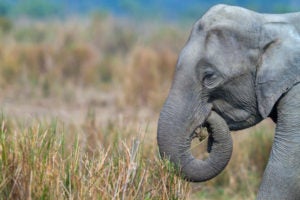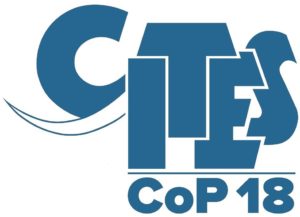
WASHINGTON —Wildlife campaigners across the globe from animal charity Humane Society International have called for an urgent worldwide ban on the wildlife trade after China’s announcement that it will prohibit the buying and selling of wild animals for food in light of the mounting threat associated with coronavirus. The capture, market trade, and butchery of wild animal species for human consumption happens across large parts of Asia and Africa such as Indonesia, India, Vietnam, and West, Central and East Africa, as well as in Latin America, says HSI, posing a very real threat of spreading zoonotic and potentially fatal diseases. Governments around the world must take China’s lead and shut down this trade for good. HSI leadership in South Africa, Nepal, India, South Korea, Canada, the United States, Australia, Guatemala, Sri Lanka, Vietnam, the United Kingdom, Honduras, El Salvador and Costa Rica have joined the call for global action.
Jeffrey Flocken, HSI president, says: “China has taken decisive action to halt the wildlife trade for human consumption implicated in the global coronavirus crisis, but it would be a grave mistake for us to think that the threat is isolated to China. The capture and consumption of wild animals is a global trade that causes immense suffering for hundreds of thousands of animals every year, including endangered wildlife species being traded to the brink of extinction. The trade can also spawn global health crises like the current coronavirus, Severe Acute Respiratory Syndrome and the deadly bird flu. Wildlife markets across the globe, but particularly in Asia and Africa, are widespread and could easily be the start of disease outbreaks in the future.”
In the north eastern states of India, wild species such as the Chinese pangolin and several species of wild birds are routinely sold for human consumption. Bengal monitor lizard meat is also consumed across India, driven mainly by the superstitious belief that the fat stored in the tail can cure arthritis, and meat from the Indian flap-shell turtle is also popular across the country, despite both species being listed under Schedule 1 of the Wildlife Protection Act, 1972. In some north Indian states, owl eyes are also consumed for their perceived medicinal benefits for human vision.
Indonesia also has hundreds of “extreme” animal markets where the conditions are the same as those described by scientists as the perfect breeding ground for new and deadly zoonotic viruses, such as coronaviruses. Wild animals are sold and slaughtered in public and unsanitary conditions. The trade takes place alongside that of dogs and cats which itself has already been shown to pose a risk of rabies transmission. In January this year, Humane Society International wrote to Indonesia’s President Joko Widodo as part of the Dog Meat Free Indonesia coalition, calling for urgent measures to ensure that Indonesia does not become the next point of origin of a deadly virus by tackling the risk posed by these animal markets.
Mr. Flocken adds: “We already know that dog and cat meat markets in Indonesia are a hotbed for disease transmission, and we also know from our investigations that rabies-positive dogs are being sold and slaughtered for consumption in these markets. Given that dogs are caged and slaughtered alongside wild animals such as snakes, bats and rats, Indonesia must surely take preventative measures now to ensure it does not become the next point of origin of a deadly virus. Similar risks can be observed in wild animal markets across the globe and especially in Asia and Africa. The trade in wildlife is a global crisis that calls for global action, now.”
Wild meat consumption is also an issue in Vietnam where wild pig, goat and bird species are eaten as well as softshell turtle, bear, snake, pangolin and civet, and snake wine is also consumed. A number of studies conducted in recent years reveal that a significant percentage of the Vietnamese population consumes wild animals.
Bush meat, including that derived from primates, is still consumed in many parts of Africa. Earlier this month, the Tanzanian government endorsed the establishment of butcheries specifically for the bushmeat trade. And in South Africa, approximately 12,000 lions are captive bred in deplorable conditions, to facilitate the export of lion skeletons to Southeast Asia for tiger bone wine. Lions are hosts for the tuberculosis (TB) virus, which can survive in bones ground to powder.
In Guatemala and El Salvador, meat from crocodile, iguana and other reptiles is often eaten during Lent despite it being illegal to do so.
This week, the National People’s Congress, the Chinese national legislature, elevated an originally temporary ban on wildlife trade for human consumption from an administrative action to the level of a national law. Specifically, the announcement, issued as an emergency measure, creates a comprehensive ban on the trade in terrestrial wild animals bought and sold for food, including those who are bred or reared in captivity.
Download video footage of Indonesia’s wild animal and dog/cat meat markets here: https://www.dropbox.com/home/Indonesia%20Extreme%20Markets
ENDS
Media contact: Wendy Higgins whiggins@hsi.org



